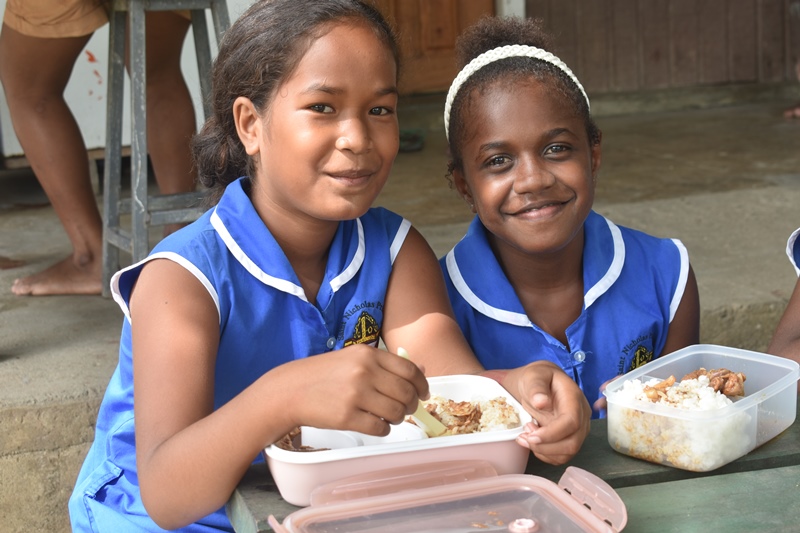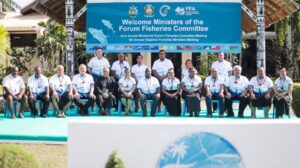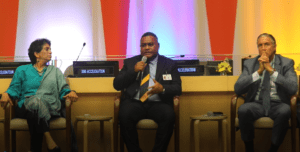BY AGNES MENANOPO
WITH the goal of promoting reducing plastic waste, the Saint Nicholas College in Honiara is participating in waste management innovation initiative’s schools rethinking plastic trial.
The 10-week trial is testing refundable-fee scheme and discount scheme interventions to reduce single-use plastics in five Honiara schools. Banning plastic bags or reducing plastic packaging will be tested as a supporting component.
Saint Nicholas Primary School Headteacher, Nelson Vive said they are happy United Nations Development Programme (UNDP) has come up with the program and that the school is being part of it.
“I think to introduce such programs to young aged students as the primary students, it would be easy for such programs to work, as long as they are well educated with the issues about the program.
“Students have learned about the consequences of plastic littering such as; plastic kills sea species when consumed and when burnt, they produce that pollutes the air that we breathe and can cause sicknesses to humans,” the headteacher said.
UNDP in partnership with the Behavioural Insights Team is designing and testing the behavioral insights intervention. The Ministry of Environment, Climate Change, Disaster Management and Meteorology (MECDM) and the Honiara City Council (HCC) are UNDP’s key partners in the initiative.
Saint Nicholas College, Emmaus Christian School, Florence Young Christian School, Koloale High School, and Honiara Senior High School are running the trial until late September.
Vive said the school have had experienced participating in such initiatives by other organizations and so it makes it easier for them with this program.
“My view is that we are improving, and by that I mean, we are easily reducing the usage of plastics in this school.
“We are also happy that UNDP provides students with containers which are sold by the school’s canteen and that many students are paying them to use instead of plastics,” Mr. Vive said.
He added that the containers provided have the school badge as well as UNDP and SIG barges on them, which attracts the students to take ownership of the containers and use them in school.
According to the Head boy and Head girl of the school, the secondary students are not cooperating well as the primary students with the use of food containers instead of just collecting food with plastics.
“Food vendors in the school have also been introduced with the program and they are well aware of the aim to reduce plastic wastes and so they know what to do when selling their food. This also applies to young coconut vendors in the school; they must sell coconuts without producing drinking straws which is also a form of plastic.
“The school canteen is also discouraged to sell products with plastics to help reduce the use of plastics in the school,” Vive added.
The behavioral change caused by the interventions will be analyzed and evaluated based on data collected from the five participating schools during the trial.
The initiative is also expected to be scaled up by reducing other single-use items in schools in line with providing healthy food and introducing the interventions in additional schools.
The United Nations Development Programme’s (UNDP) Waste Management Innovation Initiative aims to support the Solomon Islands Government in improving waste management through behavioral insights-based intervention. It is considered the first initiative that applies behavioral insights to solid waste management in the Pacific region.
The UNDP Innovation Facility is supporting the initiative as part of efforts across the world to test frontier technologies and new approaches to development challenges.




